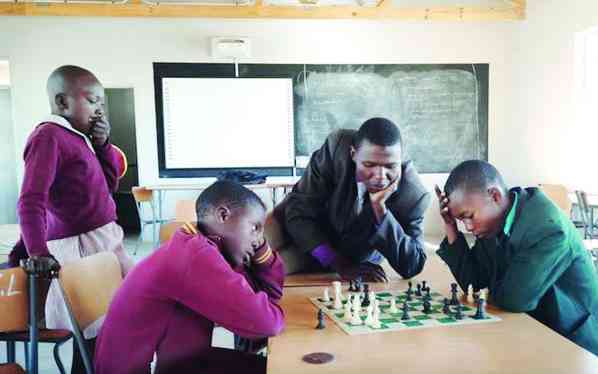
MANY of us will be familiar with the litany of anecdotes used to finish the saying, “If at first, you don’t succeed”, ranging from the initial “try, try again” to many more humorous options such as “try two more times so that your failure is statistically significant”, “call it version 1.0,” “consider yourself about average”, “destroy all evidence that you tried,” “pay someone else to do it for you” or ultimately and most cuttingly “try management”.
We have considered the serious side of this in a previous article in which we explained how we have to teach children how to handle failure, to pick themselves up off the floor and continue the game. There are certain things they must know when, as most often happens, they do not succeed initially, so that ultimately, they can succeed.
But here is an intriguing question: How should we respond if we were to turn the question above around slightly and state, not “If at first, you don’t succeed” but actually “If at first, you do succeed”?
In a similar vein to the various responses above, we might discover that the advice given might range from the more humble “smile”, to the less serious “retire while you are at the top”, “die laughing” or in fact, as seems to have very often, “become a television pundit”!
In addition, it would appear, when looking around at youngsters playing sport, that someone must somehow have taught children somewhere along the line that if at first, you do succeed, then brag, boast, glory, and gloat about it! Such however is not helpful or indeed appropriate advice.
In considering how then we might give helpful and positive advice to youngsters in that fortunate situation, well might we reflect on the line from the Rudyard Kipling poem entitled ‘If’ which we have often quoted in relation to sport, namely that “If you can meet with triumph and disaster and treat those two imposters the same” then “you will be a man” (note, not a success but a man – and being a man is far more important than being a success).
So, while our advice and exhortation to those who do not succeed the first time was to employ persistence and perspective, so the same should be true for those who do succeed. Persistence should become consistent while the perspective remains essential.
When they have done it once, the advice must be that they must do it again – play it again, Sam!
The first time it might have been beginner’s luck, a fluke, or a combination of factors working in their favour. The test, indeed the goal, is not that they succeeded once; the real test is if they can do it again and again – and again.
So, yes, let us repeat the refrain employed in the initial statement – whether we do not or whether we do succeed, we should try, try again. Consistency is the goal.
However, we should equally be helping youngsters to understand that if they do succeed at first, they must engage the same quality that those who do not succeed at first must develop and that is perspective. By that, we mean that they should first of all be grateful.
Few ever achieve success the first time out; few manage to maintain it as well; many never achieve it. On all counts, they should be grateful to have had the privilege of succeeding. They must not take it for granted.
Secondly, in relation to perspective, they should be humble. They cannot afford to rest on their laurels and just expect it to happen again, let alone all the time.
They must not brag or boast about it as there may have been many factors that contributed to their success beyond their specific ability.
There is no time to brag but in humility, they must knuckle down again. Success in one area does not make them gods or better than others. Pride comes before a fall; success comes before failure.
Thirdly, they need to be aware; they must watch out. For round the corner from success, failure is lurking, ready to pounce at the slightest weakness.
Arrogance and conceit loom. Anyone who has played a wonderful round of golf will know that feeling when they go out to play the next time!
We do well to remember that the principle does not simply apply to “if at first”; it matters and should be followed any time that we may succeed. The reality is, after all, that very few succeed the first time at anything.
However, those who do should ignore the temptation of thinking they need no advice but rather follow the advice given above. Then they too, more seriously, might try management and market the evidence which showed that they tried. If only!
- Tim Middleton is a former international hockey player and headmaster, currently serving as the Executive Director of the Association of Trust Schools Email: [email protected]










